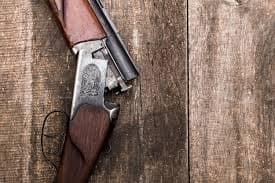What to do When a Gun Owner Dies. Call the Police and File a Report with the Court.

When a gun owner dies, what to do is be determined by state law. Certain protocols have to be followed for the transfer of the firearm in accordance with the laws of the state where the deceased resided. Otherwise, the executor, beneficiary or any person who has possession of the gun may face liability for a misdemeanor offense of criminal possession of a weapon in the fourth degree.
In the New York State, New York Secure Ammunition and Firearm Enforcement Act of 2013 (NY SAFE Act) governs what to do when a gun owner dies.
Firearm, or not? registered, or not?
When a gun owner dies, one would first need to determine whether the New York Penal Law considers the gun a firearm or not. If it is not a firearm (e.g., antique firearms, rifles with barrels over 16 inches in length, and shotguns with barrels over 18 inches in length), they can be transferred freely without the oversight of a licensed gun dealer. If it is a firearm, the procedures of the NY SAFE Act must be strictly followed in the transfer.
Also determine whether the firearm is registered or not. If it is not registered, it is considered contraband and considered a “nuisance.” It cannot be passed down to the heirs and must be turned over to law enforcement.
Period to lawfully dispose or turn over to the police
An executor or beneficiary has 15 days from the death of the gun owner to lawfully dispose of the gun or turn it over to the police for safekeeping. During this 15-day period, when transferring to the police, it is important not to bring the gun to the police station, but instead to call them so an officer can come to the decedent’s home for the inventory and collection of the firearm.
What to do when a gun owner dies is not always clear
What to do when a gun owner dies is not always clear, as transfer procedures can be complicated and each local police department has jurisdiction to enact their own rules. After the 15-day period is over, it is best to consult with an attorney who can advise you in carrying out the legal transfer of guns from an estate in coordination with law enforcement.
If the executor or beneficiary needs more than 15 days to lawfully dispose or turn the gun over to the police, he should file for a Section 7 temporary permit. This temporary permit is free and allows the executor, beneficiary, or personal representative to lawfully possess the gun until they decide what to do with it for a period ranging between three to six months (depending on the period granted in the permit).
Will? or no will?
If the gun owner bequeaths the gun to a beneficiary, strict protocols must be followed by the executor for the transfer. Otherwise, both the beneficiary and the executor suffer the risk of criminal liability. Before the transfer to the beneficiary, the executor must confirm that: (a) the decedent legally owned the gun; (b) the beneficiary may legally own the gun; and (c) the transfer adheres to proper procedures.
If there is no will, the executor, beneficiary, or personal representative must lawfully dispose of the gun or turn over the gun to the police for safekeeping, either within the 15-day period from death of gun owner or after the 15-day period if there is a Section 7 temporary permit.
Disposal of a gun includes giving it away, leasing it, selling it, offering it for sale, transferring it, or keeping it for sale. Lawful disposal, on the other hand, involves working with a licensed gun dealer to sell, give, or transfer the weapon to someone who is licensed to own it.
If you have any doubt in what to do when a gun owner dies and about transferring firearms from an estate, it is always better to consult with an attorney in order to ensure that you, the executor and the beneficiary, are free from criminal liability and that the gun will not be seized from your possession.
